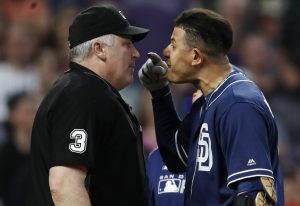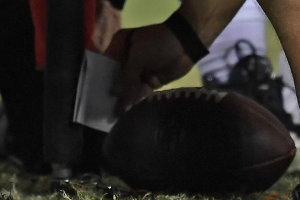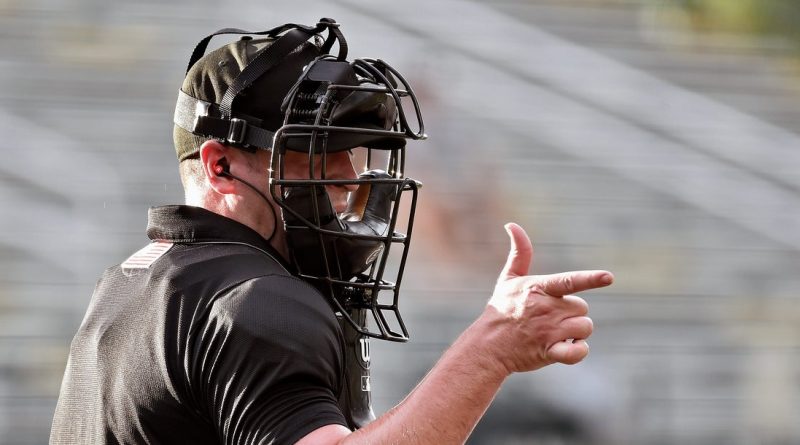Will the Whistle Always Be There to Blame?
Justin Loretz
Sports Editor
Two weeks ago, Major League Baseball officially decided that for the 2026 regular season, the Automated Ball-Strike (ABS) challenge system will be implemented. Earlier this year, the National Football League introduced technology to measure first-downs virtually in situations where it may be too high-stakes and too close to call for the referees. These steps by two of sport’s gargantuan giants signal more than just technical tweaks—they usher in a completely new era, as the authority held by human hands is being fundamentally redefined.
Just to clear the air early, these shifts are not going to make the officials’ roles obsolete. If anything, they serve as new elements designed to make their jobs easier and reduce their responsibility for the outcomes of intense situations. They become less the arbiters of truth and more the custodians of process. Their role is shifting from deciding to interpreting — explaining the technology, managing the game’s flow, and preserving authority in areas machines cannot (i.e. conduct, context). I am a firm believer that technological developments will always create more jobs than they eliminate through creative destruction, and I still stand by that here.

A big part of the risk is symbolic. For over a century, referees embodied accountability. Regardless of how little it would ever do, they were figures that were easy to argue with, protest against, or, in rare cases, respect. Half the job isn’t even making calls—it’s absorbing the frustration, excuses, and fury of the players, coaches, and fans when things don’t go their way. Everybody is going to search for every way to excuse a loss. So, one big question to be asked is, if shifts like this continue to be made, will there really be a difference in the way people react to the calls? The crowd always needs a villain, and the officials have always been the scapegoats who take this on, but eliminating their role won’t get rid of these human impulses. It could only be redirected, but to who or what? If nothing at all, are fans just going to be stripped of the ritual of protest that has become a critical element as to why sports are cathartic for people? In fact, the idea of a “villain” only serves to benefit the leagues, especially when you acknowledge the fact that they are both classified as businesses within the entertainment industry.

Technology promises fewer errors, but almost nothing in life can be wholly perfect. The ABS system has shown that the computer strike zone tends to be narrower, which would cause a major learning curve in a pitcher’s accuracy and a batter’s eye. In football, the electronic chains have caused delays at times, and they also eliminate the chance of Gene Steratore every getting to pull out an index card again (as was done in 2017 on a Sunday Night Football matchup between the Cowboys and the Raiders). No matter what is done, there will always be flaws and complaints about how any sport runs, so would it really be worth it to continue the trend and eventually eliminate the element of human error?
And deeper questions loom for the future. Are we going to have algorithms deciding one day whether a foul was intentional, or whether contact was excessive? Accuracy may win, but at the price of stripping sport of its moral and human dimensions. Sports are not as one-dimensional as simply being “right.” They are about judgment, fairness, and the gray areas that fuel endless debates at bars and kitchen tables. If those disappear, so does a substantial piece of the culture.
All things considered, the most probable path is a hybrid between humans and machines, but to ensure integrity, the leagues must make any systems in place transparent. This means publishing audit data and having very statistical measures implemented to show aspects like confidence levels and draw clear cut boundaries as to where human discretion still rules. Technology will only continue to expand. Whether or not it will eventually become capable of referees is beside the point; it is whether or not we want it to. Sport has always been more than fairness; it has been theater, conflict, and the negotiation of human judgment. If all opportunities for error are eliminated, part of the very tension that makes competition worth watching could vanish with them.
Contact Justin at loretzju@shu.edu

